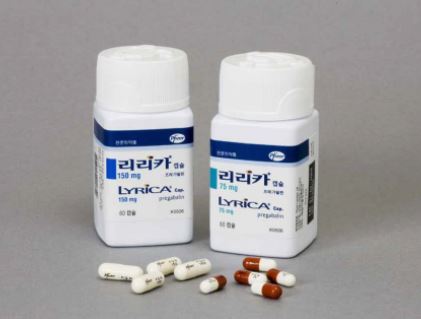Pfizer partially won a legal battle over Lyrica Cap. with 13 Korean pharmaceuticals.
It remains to be seen, however, whether the multinational pharmaceutical will be able to make the most of the legal victory in expanding its market, given Pfizer will have to compete with domestic drugmakers as the patent for the medicine expires on Aug. 14.
Lyrica Cap. has indications to treat neuropathic pain and epilepsy. According to UBIST, a market survey agency, doctors prescribed 56.6 billion won ($49 million) worth of the medicine last year.
In 2012, domestic drugmakers released the generics of Lyrica Cap.

Pfizer화이자 filed a lawsuit of a preliminary injunction against infringement of its patent and other rights in 2013 and 2014, and Korean companies stopped manufacturing and selling their generic products.
Thirteen companies, however, excluded pain relief functions from their indications, won approval for their revision and continued to market the drug. They are CJ HealthcareCJ헬스케어, Samjin Pharm삼진제약, Korea United Pharm한국유나이티드제약, Hanmi Pharm한미약품, Hanlim Pharm한림제약, Jinyang Pharm진양제약, Pharma Korea한국파마, Whanin Pharm환인제약, Myungin Pharm명인제약, Dong-A ST동아ST, Shinpoong Pharm신풍제약, Dongkwang Pharmaceutical동광제약, and Bio & Chemical R&D비씨월드제약.
Last year, Pfizer demanded damages against these companies for infringement on its patent rights of neuropathic pain and fibromyalgia syndrome
The Seoul Central District Court ruled in partial favor of Pfizer. According to the sentencing, the court recognized the Korean companies’ infringement on the patent usage in the initial stage but judged they did not infringe on the patent when the companies suspended production and marketing after accepting Pfizer’s injunction request and resumed its sale after excluding pain relief function from the indications.
However, the court did not accept the precedents in the United Kingdom presented by Korea United Pharm, Hanmi Pharm, Hanlim Pharm, Jinyang Pharm, Pharma, as the ground for non-infringement. In the similar suit over the use of the Lyrica Cap.’s generic products, the British court raised the hands of generic makers.
The Seoul court told Pfizer and Korean pharmaceuticals to compensate for the damages of each other. The court told Korean companies to pay costs of the drug sold before the date Pfizer applied for the lawsuit of injunction to stop selling generics. It also told Pfizer to compensative for Korean companies for its sales after the date the domestic firms won the approval for changed permission.
Accordingly, Pfizer has to pay 43 million won to domestic pharmaceuticals, while the Korean companies should give 2.2 billion won to Pfizer.
The ruling does not seem to pose a significant burden on Korean companies, however. Because when the usage patent of Lyric capsule expires on Aug. 14, Korean drugmakers will be able to market their generic products freely.
Lyrica Cap. is prescribed more as pain killer than epilepsy treatment. If the usage patent expires, there will be no limitations to its indications, which will set off fierce sales competition between the original drug and its generics.
The Ministry of Food and Drug Safety (MFDS)식품의약품안전처 has already approved 183 generics, and 13 pharmaceuticals have already been selling generics with a limited indication in epilepsy. The Korean companies with strong sales ability are preparing for a massive marketing offensive.

